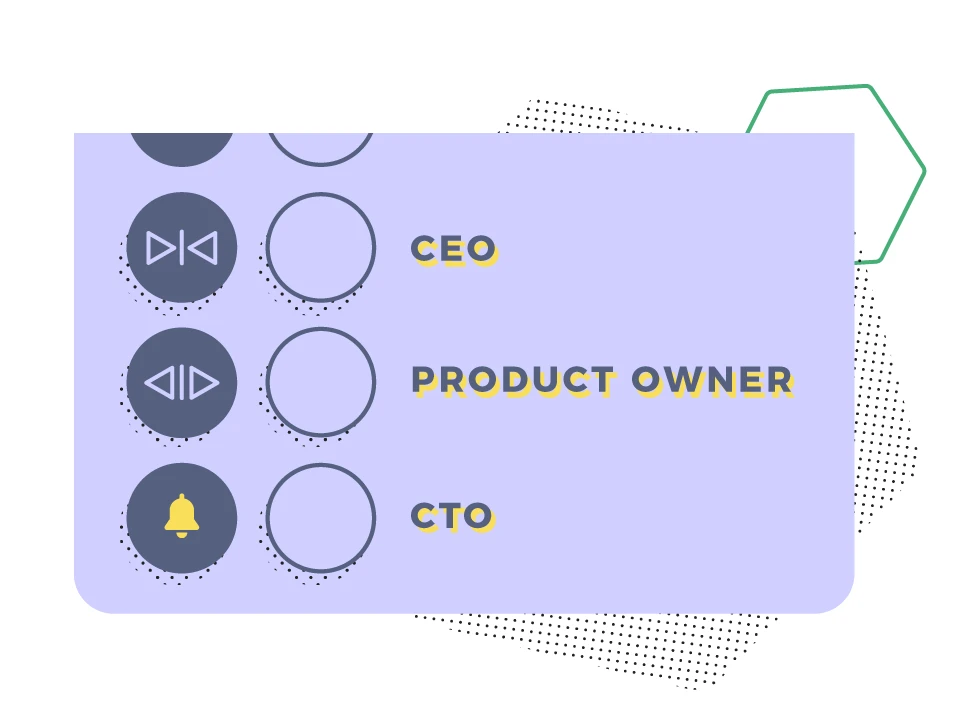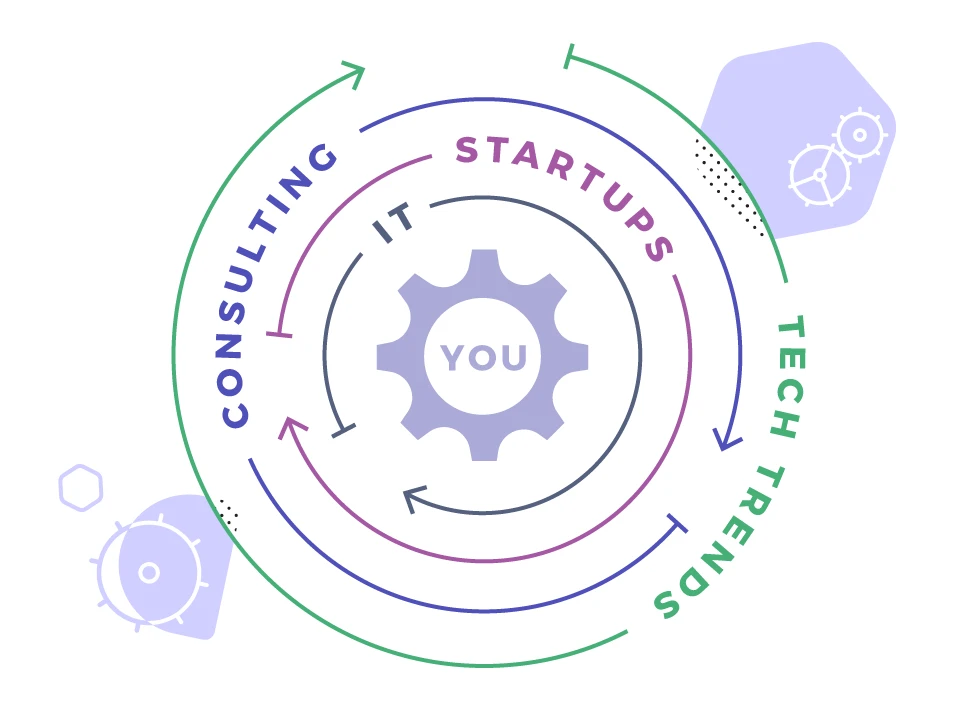Being a tech advisor has its ups and downs but the most difficult part is probably getting into it. For one, you need a few years of experience in the industry to guarantee that you’re an established expert and know your way around startups. Moreover, you can’t get into it halfway. Advising takes a lot of resources and time so don’t expect to have time left over for a full-time job.
Aside from that, you just need a few contacts in the startup industry that will agree to rely on your advice. Maybe a friendly CTO or a friend who’s struggling with a particularly tough project. Present them with your portfolio and lay out a proposal, just like you would for any professional meeting. The key is to prove that you know what you’re doing and can be helpful to the company and the project in question.
Outlook of Tech Advising market

Right now, more and more tech advising is turning toward outsourcing. The bigger names are still getting work in the USA but a lot of startups are turning to East European companies for IT advising.
This trend is growing because East Europe offers lower prices with no dip in the quality of advising. Their experts spend years building up resumes and some consulting firms there are already scoring contracts with tech giants.
What this means for a newbie tech advisor is that you’ll have to be competing not with other people in your market but with overseas firms. That entails lower asking prices and a different approach. You need to be offering a hands on approach since an Eastern European expert won’t be able to always fly out and survey the situation on site. You, however, have that advantage.
Still, with more and more emphasis on non-traditional company structures, you can expect a boom in the advising market. This model of cooperation is growing in popularity day by day so there’s room for everyone.
Why Should You Do This?
Many people would raise the question “Why would you be a tech advisor when you can strive to be a CEO? Lead a startup? Explore your creativity!”. But here’s the thing – these aren’t applicable to everyone. Let’s go through this point by point:
- Why not become a CEO?
- Why not focus on creating your own product?
- What about an executive position like a CTO?

1. Why Not Become a CEO?
For one, because being a CEO is a massive responsibility and requires more than just technical knowledge. A CEO or any head of a company, regardless of title, must know how to lead and inspire employees, how to negotiate deals, how to be a strong presence and shine under a spotlight. A CEO is often, at least in part, a representative role. You’d be shaking hands at conferences and meeting people and not everyone is cut out for that. Moreover, not everybody wants that.
Any type of leadership comes with huge responsibility and it can be a burden. The same goes for being, even partially, involved in marketing. Most people who become tech advisors have a completely different approach to the job and don’t covet the things that separate CEOs and directors from the rest.
2. Why Not Create Your Own Product?
Hold on now, who says you can’t? It’s perfectly possible for a tech advisor to take their time and help others while also exploring their own ideas. Most of the experienced tech gurus have several things going at once and rarely stay pigeonholed on a single project or in a single industry. There’s no shame in sticking to just technology consulting, sure, but if you’re the kind of person who wants to get into the industry and be active in it – you’re likely not the type of person to sit still.
But even if you do decide to forego your own creations in favor of working with others… Why not? It’s a job where you help people realize their ambitions and guide them through complicated projects that most wouldn’t be able to tackle. This type of work is all about creatively navigating challenges and offering cutting-edge solutions. Plenty of space to realize your own creativity.
3. What about an executive position like a CTO?
A CTO is pretty much an in-house tech advisor with some extra responsibilities. Well, okay, they do more than that and you know it if you’ve worked side by side with a CTO. And it’s a really good position. But, again, it’s a trade-off in terms of how much responsibility you want to shoulder.
In fact, some tech advisor gurus like to call themselves “freelance CTOs” because they do similar work, just outside of the company’s staff. Why tie yourself down to one office and one (or a few projects) when you can move freely between many of them, offering your know-how to people.
Now, let’s actually talk about why IT advising is a good job and what makes it worth it. A personal favorite reason is that you get to actually help people. You come to someone with a problem on their hands and you present the solution. In fact, no, you are the solution. Your knowledge and expertise are what makes the projects run successfully. You get to be the superhero of startups and the helper of those lost in their endless tech documentation. Sure, the job isn’t exactly ritz and glamour but it’s one where you can see the direct results of your help.
It gives you a chance to work on a variety of projects so you don’t get bored of doing the same thing every day. This variety also lets you flex your brain and learn new approaches and solutions. So you’ll be training for the job while on the job, a pretty smart way to do things.
Let’s not forget that a tech advisor doesn’t have to shoulder the burden of leading the whole company and being responsible for failures. Because, all too often, failures come from mismanagement or other similar non-tech issues. Yet a CTO is often blamed for the problems while a tech advisor is only responsible for the strength of their advice and expertise.
Pros and Cons of Tech Advising
Some of these might be a matter of preference but we’ll try to be relatively objective. This way it’ll be clear that the pros of tech advising outweigh the cons.

Pros
1. Grow Your Skills
Advising startups is an easy way to learn new things and guarantee that your knowledge isn’t outdated. You’ll constantly be finding fresh ways to overcome obstacles and deliver quality with unexpected solutions. This isn’t always easy but it’s rewarding, especially when you see how your skills change the company’s direction or determine the success of a project.
2. Earn Well
We’re not going to shy away from this: an IT consulting specialist can make a good living based solely on the strength of their experience or reputation. It might not be an instant windfall but, as time goes by, you’ll see your efforts rewarded exponentially. So if you’re working for more than the love of the game – choosing development consulting isn’t a bad idea. Just remember that money isn’t everything and you do need some passion for the job to make it big.
3. Diversify Your Portfolio
Instead of being stuck on a single type of project or in the same sub-industry, you’ll be tech consulting on projects that encompass all areas of IT services. From FinTech startups to healthcare projects to blockchain development, you can see them all and, if you wish, help them all.
This does mean you have to keep your options open and be ready to work on something completely new to you. But if you’re willing to learn and grow – this won’t be a problem. In fact, it will be a big advantage for all of your further work.
4. Be Your Own Brand
No need to worry about whether your company is going to make it or hope that a headhunter is going to offer you a good position. Instead, every single project you complete will be boosting your reputation in the sphere of tech advising services. Eventually, when you offer your help to a company they’ll recognize your name because of your past successes. In fact, eventually you won’t be the one offering services, companies will be coming to you. The opportunities are all laid out as long as you’re willing to put yourself out there or delegate it to other professionals.
5. Network With the Greatest
Instead of waiting to see which companies blow up and then try and work with them you can go directly to promising startups and help them launch their projects. That way you’ll be meeting promising new minds in the industry and working with those who could change the IT industry in a major way. And they’d be doing it on the strength of your tech advising services. All of that is for you to achieve with your job, the only limit is your intuition. But even if you don’t stumble upon the new industry leader, you’ll be networking with many CEOs and CTOs, delivering advice and getting strong connections in return. It’s a good way to establish yourself in the industry.
Cons
1. Prepare To Sink Time Into It
Making your way into the lucrative IT advisor market is not going to be easy. But the real time-sink comes when you start to actually work on projects. Tech advisors don’t really do 9 to 5 most of the time, at least not new ones. When you’re established, sure, go ahead and work 4 hours a day. But a fresh-faced advisor will have to put in the time to get noticed and really deliver results.
2. Learn The Job On Your Own
Few people will hold your hand through your first projects unless you have a friend who’s in IT advising. You’ll be learning to network, to structure your suggestions, to communicate with CEOs, etc. This isn’t as daunting as it seems but it does take time and effort like any job. So if you think advising is for the lazy – think again!
3. Shoulder the Risk of Poor Advice
Nobody’s perfect and you’re going to choose suboptimal suggestions sometimes. That shouldn’t be an issue at all. What is going to be an issue, though, is companies coming to you and complaining. They do have a right to it but it’s often going to be overblown as a scapegoat is always easy to blame. So get ready to apologize or spend hours thinking of the absolute best solution at all times.
4. Get Ready for an Unstable Income
You’re not working a 9 to 5 job so there’s no guarantee that you’ll have the same kind of salary every month. But, as we’ve said, an IT advisor can bring in pretty high income so you’re not likely to live paycheck-to-paycheck once you’ve put your name out there. Still, there are plenty of people who prefer the stability of a regular office job and we’re not blaming anyone for that.
5. Deal With Self-Promotion
Yes, self-promotion and being your own brand is a double-edged sword. Are you ready to mingle at conferences? To spend your first year messaging startups and offering your IT development advice? These might not look like much to you, which is good. But some people find this to be the most exhausting part of the job as the constant need to communicate with new people can get old really quick.
Summary

As you can see, being a consulting guru is quite a solid option for those with sufficient expertise. If you have years in the IT industry behind your back, choosing this route can lead you to meeting new people, working on interesting projects, and helping bring to life the kinds of products that could change the world. A tech advisor is a startup’s best friend after all!
If you need some help with your current project, SysGears would be happy to assist you as a tech consulting firm or by bringing on our employees to bring your advice to life.

